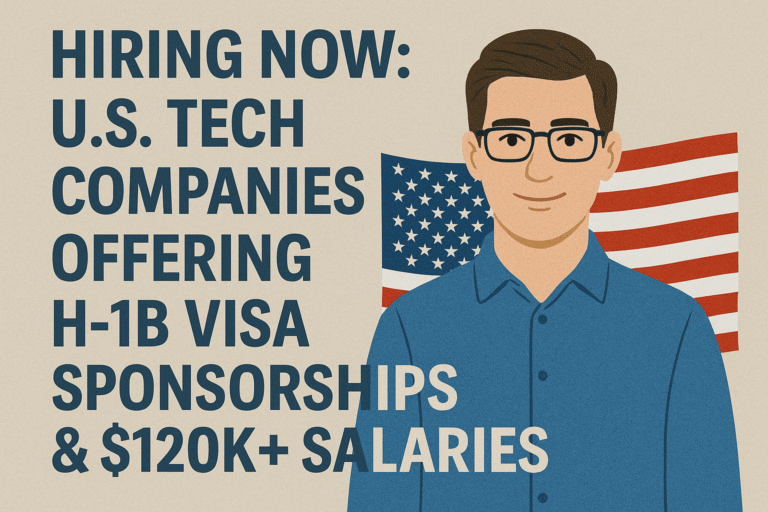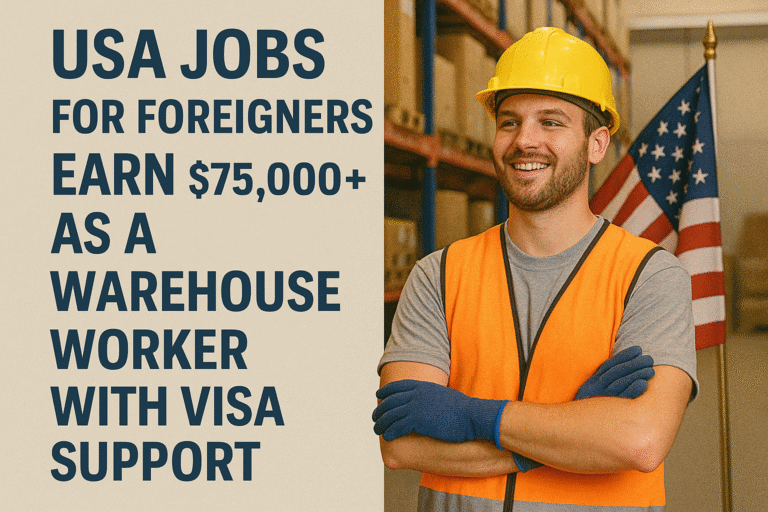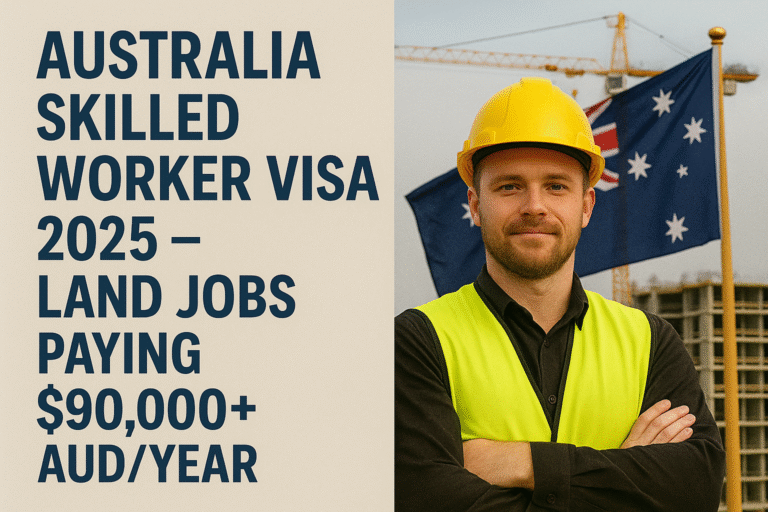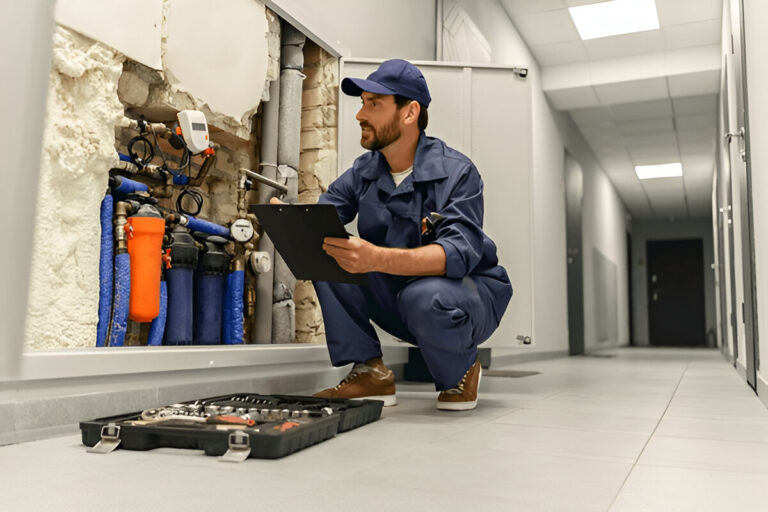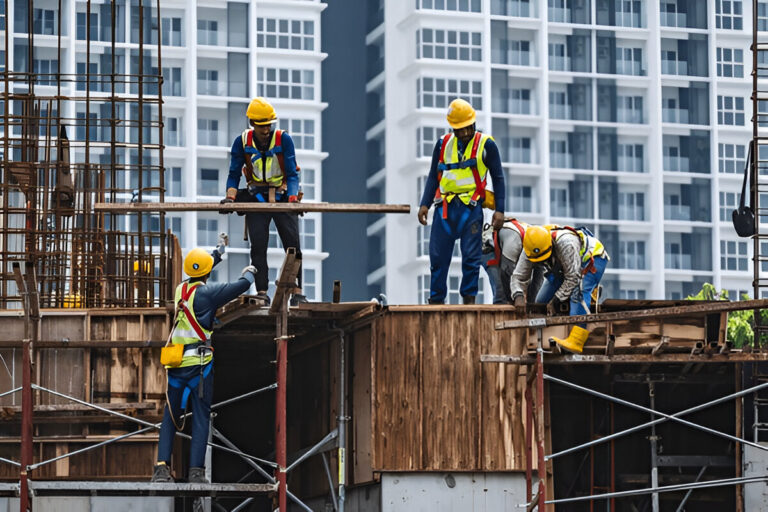Top 7 In-Demand Jobs in Australia for Foreigners – $6,000/Month + Visa Help
Have you been thinking or dreaming of working abroad where you can get high salaries and improved standard of living? With high salaries, a world-class healthcare system, and an excellent quality of life, Australia continues to be a top destination for foreign workers.
The good news? In 2025, Australia is actively hiring international talent for critical roles across healthcare, engineering, IT, trades, and hospitality—many of which come with visa assistance and salaries averaging $6,000/month or more.
What Visa Options Are Available?
There are three main visa pathways for skilled foreign workers:
1. Skilled Independent Visa (Subclass 189)
- Points-based
- No sponsorship required
- Permanent residency granted
2. Skilled Nominated Visa (Subclass 190)
- State-sponsored
- Permanent visa
- Faster processing for in-demand state roles
3. Temporary Skill Shortage Visa (Subclass 482)
- Employer-sponsored
- Pathway to permanent residency
- Visa help provided by employer
Top 7 In-Demand Jobs in Australia for Foreigners in 2025
1. Registered Nurses
- Average Salary: $6,200 – $8,000/month
- Visa: Subclass 189, 190, or 482 (employer-sponsored)
Australia’s healthcare sector is critically short-staffed. Registered nurses are urgently needed in hospitals, aged care, and rural clinics. Overseas nurses with experience and proper licensing (ANMAC assessment and AHPRA registration) are highly welcomed.
Responsibilities:
- Patient care, medication management, and wound treatment
- Emergency response
- Support in surgeries and health education
2. Software Developers
- Average Salary: $7,000 – $10,000/month
- Visa: Subclass 189 or 482
Tech roles dominate Australia’s Skilled Occupation List. Developers with experience in full-stack development, cloud platforms (AWS, Azure), cybersecurity, and AI are in high demand.
Responsibilities:
- Writing and testing code
- Building scalable systems
- Ensuring cybersecurity compliance
3. Electricians
- Average Salary: $6,000 – $7,500/month
- Visa: Subclass 190 or 482 (regional priority)
Trade-qualified electricians are among the highest-paid workers in Australia’s skilled trades. From housing projects to mining infrastructure, there’s plenty of work across urban and rural regions.
Responsibilities:
- Installing, repairing, and maintaining electrical systems
- Following Australian safety standards
- Working in commercial and residential environments
4. Civil Engineers
- Average Salary: $6,800 – $9,000/month
- Visa: Subclass 189 or 190
Australia’s infrastructure projects (bridges, highways, railways) are expanding, especially with major developments in New South Wales and Victoria. Civil engineers with project experience are highly sought after.
Responsibilities:
- Design and oversee construction projects
- Analyze data, maps, and reports
- Collaborate with government and private sector contractors
5. Chefs and Cooks
- Average Salary: $5,000 – $6,500/month
- Visa: Subclass 482 or 190 (regional restaurants)
With Australia’s hospitality sector bouncing back post-COVID, chefs and cooks are in massive demand, especially in regional towns and tourism hubs.
Responsibilities:
- Preparing meals in hotels, cafes, and restaurants
- Managing kitchen staff
- Menu planning and quality control
6. Diesel Mechanics
- Average Salary: $6,000 – $7,200/month
- Visa: Subclass 482 or 190
The mining and transport industries rely on diesel fitters to maintain heavy vehicles and equipment. If you have hands-on mechanical experience, you could land a sponsored job fast.
Responsibilities:
- Repair and service diesel engines
- Diagnose mechanical problems
- Ensure compliance with safety regulations
Visa Advantage: These jobs often come with full relocation and tool allowances.
7. Aged and Disability Support Workers
- Average Salary: $4,800 – $6,200/month
- Visa: Subclass 482 or 491 (regional)
Australia’s aging population has created an urgent demand for carers. These roles are suitable for empathetic individuals with experience in home care, community work, or health support.
Responsibilities:
- Assisting clients with daily routines
- Providing companionship and transportation
- Helping with medication and personal care
How to Apply for These Jobs from Abroad
Step 1: Get Your Qualifications Recognized
- Complete a skills assessment through the designated authority for your occupation
- Gather your work experience letters and certificates
- Take an English proficiency test (IELTS, PTE, or TOEFL)
Step 2: Search for Jobs Offering Visa Help
Use these platforms:
Step 3: Apply and Interview
Most employers offer:
- Online application portals
- Video interviews
- Clear guidance for sponsored visa application
Step 4: Get Employer Sponsorship and Apply for Visa
Once selected:
- Employer issues a nomination
- You apply for a visa through the Department of Home Affairs
- Pay the visa fee, complete health checks, and wait for approval (usually 1–4 months)
Frequently Asked Questions (FAQs)
1. Can I work in Australia without a university degree?
Yes. Many trades, healthcare, and hospitality jobs require only experience or vocational training.
2. Is visa sponsorship guaranteed for every role?
No, but many employers will clearly state if they offer visa support. Skilled trade and healthcare roles are most likely to offer sponsorship.
3. How much does the visa cost?
The Skilled Worker Visa application fee is around AUD $2,800 – $4,600 depending on visa subclass and whether family members are included.
4. Can I bring my family?
Yes. Sponsored skilled workers can bring their spouse/partner and children. Spouses can work full-time in most cases.
5. Can these jobs lead to permanent residency?
Absolutely. Most skilled roles under the 482 or 190 visa lead to permanent residency after 2 to 4 years
Conclusion
Australia is one of the few countries actively recruiting international talent in 2025 and offering a clear path to long-term settlement. With salaries averaging $6,000/month, visa help, and an excellent standard of living, now is the perfect time to start your journey.
Whether you’re in healthcare, engineering, hospitality, or skilled trades, there’s a demand for your expertise in Australia. Begin your application, research sponsoring employers, and take the next step toward building your future in a country that values your skills.
